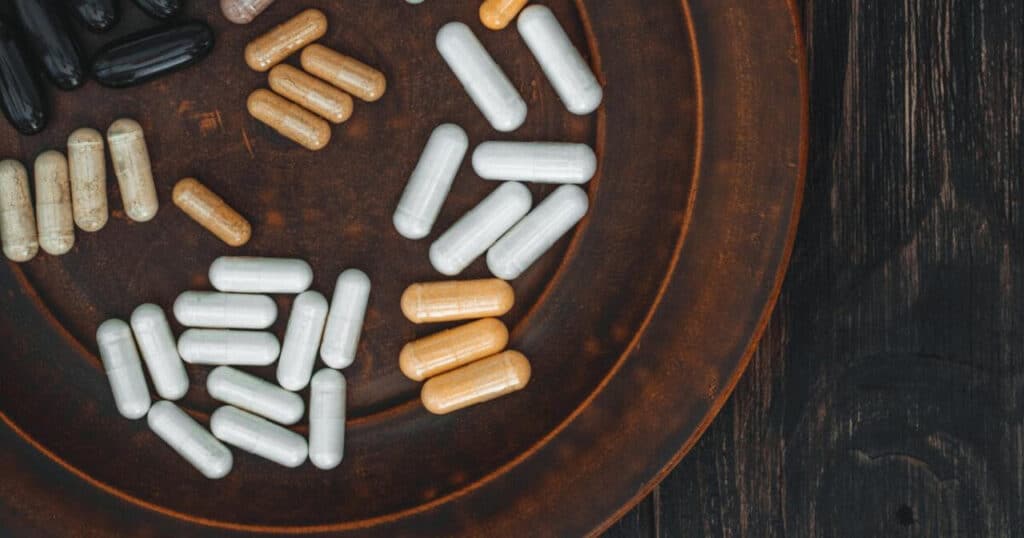Biotin, also known as Vitamin B7 or Vitamin H, is a water-soluble vitamin that plays a crucial role in maintaining good health. It is a part of the B-vitamin family and is essential for various bodily functions. In this article, we will explore what biotin is, its benefits, potential side effects, appropriate dosage, safety considerations, and address frequently asked questions.
Table of Contents
What Is Biotin?
Biotin is a coenzyme that the body needs to metabolize carbohydrates, fats, and amino acids. It assists various enzymes in breaking down these nutrients and converting them into energy.
Apart from its role in metabolism, biotin is vital for maintaining healthy skin, hair, and nails. Additionally, it contributes to the proper functioning of the nervous system and supports prenatal development during pregnancy.
Read More: Glycolic Acid Benefits To The Skin
Benefits
1. Healthy Hair, Skin, and Nails: Biotin is often associated with promoting healthy hair, skin, and nails. It can strengthen brittle nails, reduce nail breakage, and improve overall nail health. Additionally, biotin may help combat skin conditions like dermatitis, leading to healthier skin.
2. Metabolism Support: As a coenzyme in various metabolic reactions, biotin aids in converting food into usable energy. It helps metabolize carbohydrates, fats, and proteins, playing a vital role in the body’s energy production.
3. Nervous System Function: Biotin is involved in maintaining the proper functioning of the nervous system. It is essential for nerve signaling and supports overall neurological health.
4. Prenatal Health: During pregnancy, biotin is necessary for the healthy development of the fetus. Adequate biotin levels in expectant mothers are crucial for the proper growth of the baby.
Side Effects
Biotin is generally considered safe when taken within the recommended dosage. However, excessive biotin consumption can lead to potential side effects:
1. Acne Breakouts: Some individuals may experience acne breakouts when taking high doses of biotin supplements.
2. Allergic Reactions: In rare cases, biotin supplements can cause allergic reactions, leading to hives, difficulty breathing, and swelling.
3. Interference with Lab Tests: Biotin can interfere with certain lab tests, potentially leading to inaccurate results. If you are undergoing any medical tests, inform your healthcare provider about biotin supplementation.
Dosage/Safety
The recommended daily dosage of biotin varies depending on age, gender, and specific health conditions. Generally, the Adequate Intake (AI) for biotin is as follows:
- Infants 0-6 months: 5 mcg
- Infants 7-12 months: 6 mcg
- Children 1-3 years: 8 mcg
- Children 4-8 years: 12 mcg
- Children 9-13 years: 20 mcg
- Adolescents and Adults: 30 mcg
Pregnant and breastfeeding women may require higher biotin intake. Always consult with a healthcare professional before starting any supplement regimen, especially during pregnancy or if you have underlying health conditions.
What to Look For

When choosing biotin supplements, consider the following factors:
1. Quality: Opt for supplements from reputable brands that adhere to good manufacturing practices.
2. Dosage: Select a supplement with the appropriate dosage as recommended by your healthcare provider.
3. Form: Biotin supplements are available in various forms, including capsules, tablets, and softgels. Choose the form that suits your preference and ease of consumption.
4. Additional Ingredients: Check for any potential allergens or additives present in the supplement.
Frequently Asked Questions
1. Can biotin help with hair growth?
Biotin is often associated with improved hair health and may promote hair growth in individuals with biotin deficiency. However, scientific evidence supporting its role in hair growth for those with normal biotin levels is limited.
2. Are there any natural sources of biotin?
Yes, biotin can be found naturally in various foods, including eggs, nuts, seeds, whole grains, and certain vegetables like sweet potatoes and spinach.
3. Can biotin supplements lead to weight loss?
There is no substantial evidence to support the claim that biotin supplements aid in weight loss. Weight loss is achieved through a balanced diet and regular exercise.
4. Is biotin deficiency common?
Biotin deficiency is relatively rare, as it is present in many common foods. However, certain medical conditions or prolonged use of certain medications can lead to biotin deficiency.
Conclusion
Biotin is a vital nutrient that supports overall health, especially in maintaining healthy hair, skin, and nails. It plays a key role in metabolism, nerve function, and prenatal development. While biotin supplements can be beneficial for specific conditions, it is essential to take them under the guidance of a healthcare professional and adhere to the recommended dosage. By understanding the benefits, potential side effects, and safety considerations, you can make informed choices about incorporating biotin into your health routine.


